Number of Japanese in China falls by 10%
Updated: 2014-08-18 07:54
By Zhang Yi(China Daily)
|
||||||||
|
 |
Experts said the drop was a consequence of the increasingly strained diplomatic ties between Beijing and Tokyo. However they expect that the number will gradually stabilize because the countries are interdependent in today's globalized world.
The report said 135,000 Japanese were living in China for more than three months or residing permanently on Oct 1, 2013, a year-on-year decrease of 10.2 percent.
In the same yearlong period, the overall number of Japanese living overseas increased by 0.7 percent to a record high of 1.258 million. China is second on the list of countries with the largest numbers of Japanese expatriates.
|
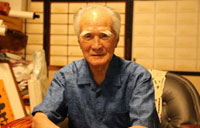 |
"The decrease in the number of Japanese living in China is a natural result of the overall tension between the two countries," Qu said.
He said that the heightening tension had raised concern among Japanese firms, financial institutions and students in China, who all fear that political uncertainties will bring a deteriorating working and living environment for Japanese people.
China-Japan relations have soured since the Japanese government's "purchase" of the Diaoyu Islands in September 2012, a provocative step amid worsening bilateral relations.
Ties between the countries continued to deteriorate after Japanese Prime Minister Shinzo Abe took office in late 2012, especially when Abe visited a notorious war shrine on Dec 26, 2013.
The latest confrontation between Beijing and Tokyo came on Friday as Japanese Cabinet ministers paid their respects at the Yasukuni Shrine on the 69th anniversary of Japan's World War II defeat.
Abe sent a ritual offering to the shrine, which honors 14 Class-A Japanese war criminals, and this - in addition to the visits made by ministers and lawmakers - further ratcheted up the tension between Japan and China.
Ma Junwei, a scholar of the China Institute of Contemporary International Relations, said the reason behind the growing unwillingness of Japanese people to stay in China lies in the retrogressive state of bilateral relations.
Ma is pessimistic about the chances of relations improving as he believes Abe's foreign policy toward China will not change during the remaining two or three years of his term.
The most he hopes for is that the countries will put their differences aside and work toward common goals, though he did not rule out the possibility of the leaders meeting on the sidelines of the upcoming Asia-Pacific Economic Cooperation gathering in Beijing.
"Considering the current state of bilateral relations, it is natural for Japanese people to choose other countries to live in when there are plenty of options," Ma said.
Japanese businesses are likely to shift their production focus from China to countries in Southeast Asia.
However, Qu said cooperation between China and Japan is of great significance and will not stop because of diplomatic tensions.
"Japanese firms create job opportunities in China, and China is a vast market for Japan," he said, adding that as long as the two nations are not in a state of war and their diplomatic relationship continues, trade and cultural links will persist.
"For example, the Chinese auto market is a mature one for Japanese carmakers," he said. "Joint ventures with Japanese brands will continue as usual and there will be no decrease in the number of Japanese personnel in this industry."
Japanese automakers continue to enjoy robust volume growth in China and are regaining some of the market share lost following the 2012 diplomatic dispute over the Diaoyu Islands, a report by rating agency Fitch said this month.
According to automotive news portal auto.gasgoo.com, Japanese brands sold 1.46 million cars in the first half of the year- up 15.5 percent from the same period last year. Nissan, Toyota, Honda, Suzuki and Mazda all reported year-on-year increases of more than 10 percent.
Ma said he believes China-Japan relations will continue to develop in the long run with periodic ups and downs, and he gave the recent foreign ministers' meeting as an example of an upturn.
Foreign Minister Wang Yi and his Japanese counterpart, Fumio Kishida, held talks in Myanmar's capital on Aug 9, the first meeting of its kind in two years.
The talks took place on the sidelines of a meeting of foreign ministers from the Association of Southeast Asian Nations and other countries.
Ma expects to see little further change in the number of Japanese engaged in public affairs and trade in China, though there could be a sharp decrease in the number of short-stay Japanese visitors such as tourists.
Contact the writer at zhangyi@chinadaily.com.cn
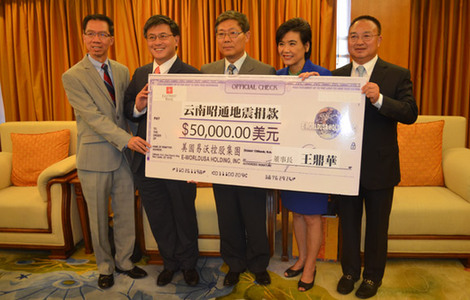
 California Chinese open pockets for quake relief
California Chinese open pockets for quake relief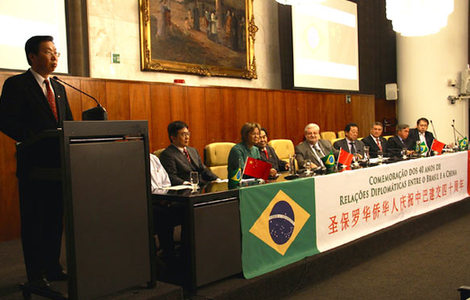
 Brazil-China a 'model' to copy
Brazil-China a 'model' to copy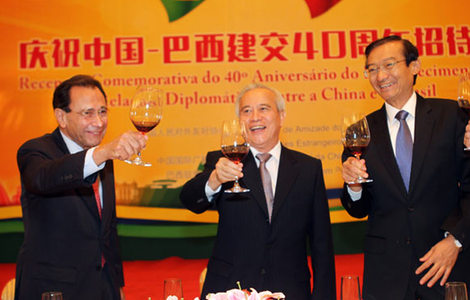
 Unique relation needs further tightening
Unique relation needs further tightening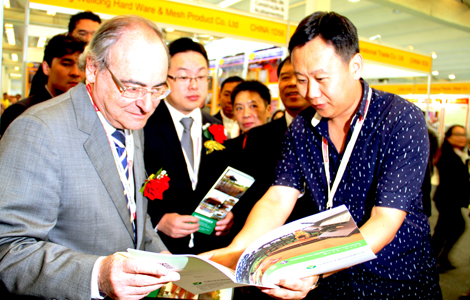
 Trade shows help firms to gain a foothold in Brazil
Trade shows help firms to gain a foothold in Brazil
 First lady tours museum with wives of foreign leaders
First lady tours museum with wives of foreign leaders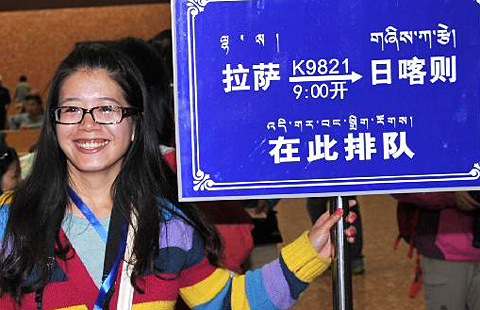
 Passenger transport starts on Tibet's new railway
Passenger transport starts on Tibet's new railway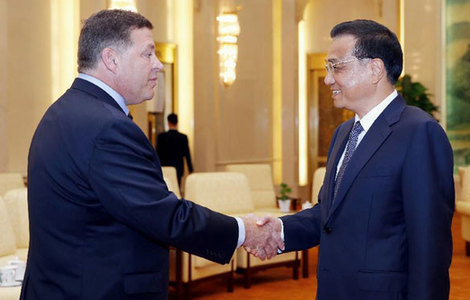
 China to help upgrade US transport network
China to help upgrade US transport network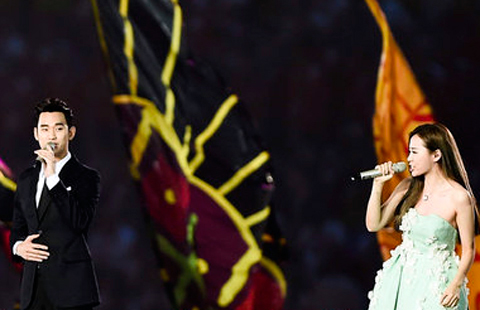
 Youth Olympic Games kick off in Nanjing
Youth Olympic Games kick off in Nanjing
Most Viewed
Editor's Picks

|

|

|

|

|

|
Today's Top News
190,000 people in HK turn up for anti-Occupy march
Ebola outbreak interrupts Chinese companies in Liberia
Macao's Chui unveils political platform for chief executive election
Gov declares emergency, imposes curfew in Ferguson
APEC sets ball rolling for free trade
China's holdings of US securities take a slight dip
China seeks to conduct dialogue with Vatican
China opposes Japan PM's offering to Yasukuni Shrine
US Weekly

|

|







